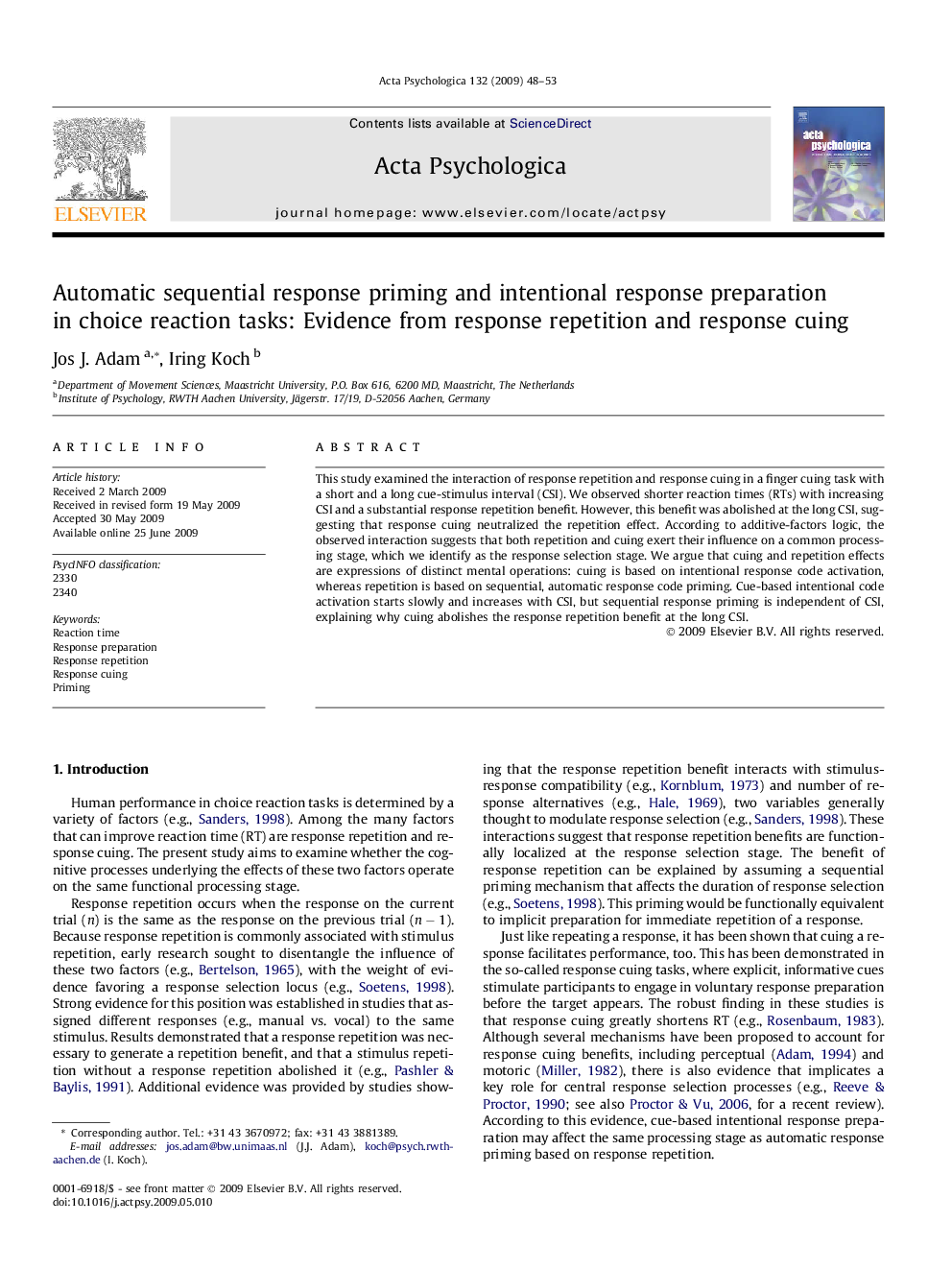| Article ID | Journal | Published Year | Pages | File Type |
|---|---|---|---|---|
| 920278 | Acta Psychologica | 2009 | 6 Pages |
This study examined the interaction of response repetition and response cuing in a finger cuing task with a short and a long cue-stimulus interval (CSI). We observed shorter reaction times (RTs) with increasing CSI and a substantial response repetition benefit. However, this benefit was abolished at the long CSI, suggesting that response cuing neutralized the repetition effect. According to additive-factors logic, the observed interaction suggests that both repetition and cuing exert their influence on a common processing stage, which we identify as the response selection stage. We argue that cuing and repetition effects are expressions of distinct mental operations: cuing is based on intentional response code activation, whereas repetition is based on sequential, automatic response code priming. Cue-based intentional code activation starts slowly and increases with CSI, but sequential response priming is independent of CSI, explaining why cuing abolishes the response repetition benefit at the long CSI.
